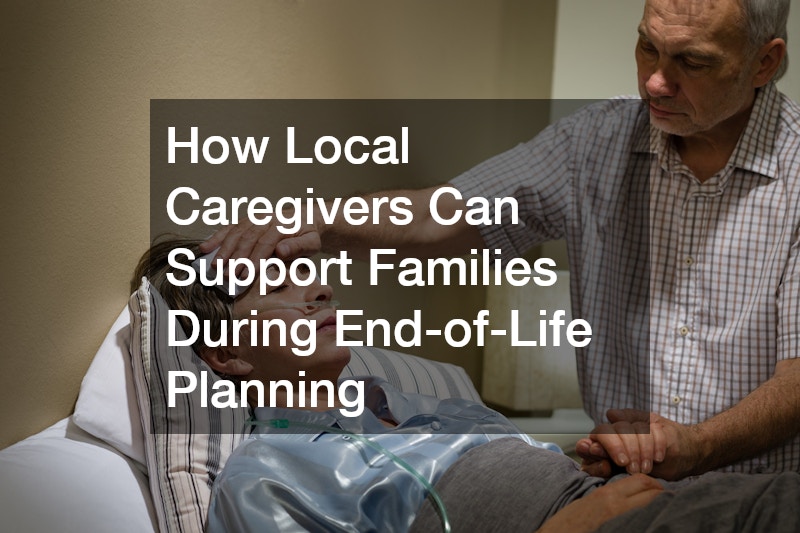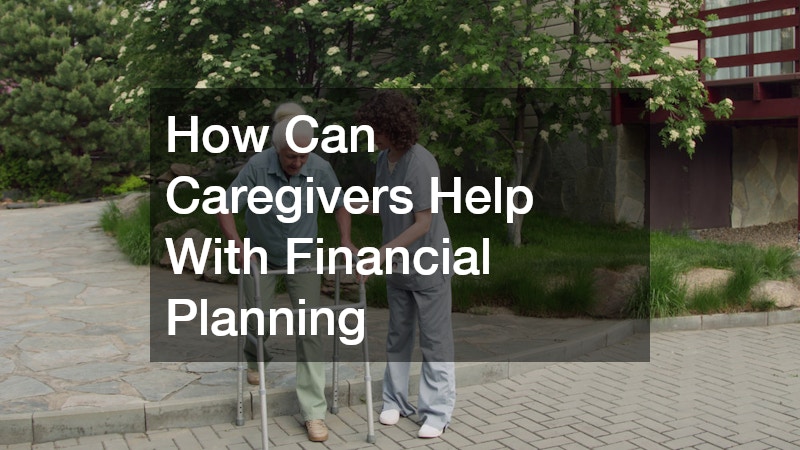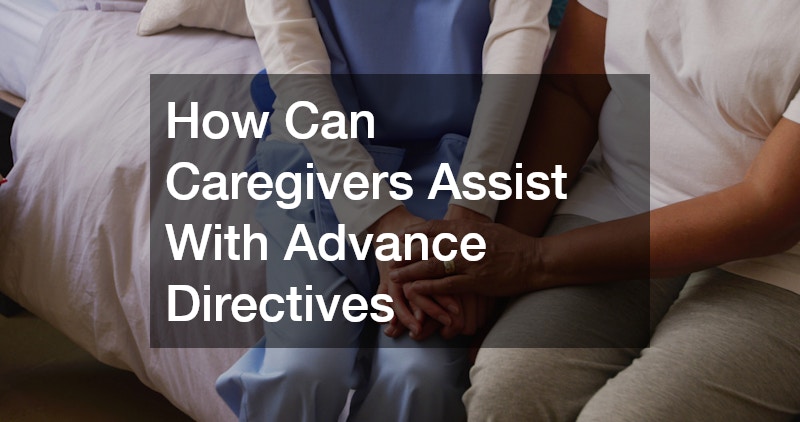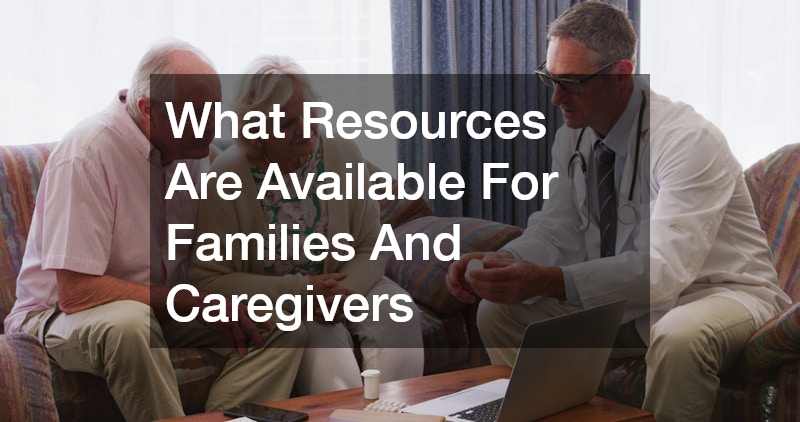

End-of-life planning is a deeply personal and often challenging process for families. It involves more than just making final arrangements; it encompasses emotional support, financial preparation, legal considerations, and medical coordination. Local caregivers play an essential role in guiding families through this journey, providing both practical assistance and compassionate care. From understanding advance directives to navigating hospice services, these professionals ensure that families feel supported at every stage. Their expertise allows families to make informed decisions while honoring the wishes and dignity of their loved ones. By integrating resources such as healthcare medical billing, physical therapy, and specialized services, caregivers create a comprehensive plan that meets the unique needs of each family.
What Is End-Of-Life Planning
Definition And Importance
End-of-life planning refers to the thoughtful preparation for a person’s final stages of life. It is crucial for minimizing stress and ensuring that a loved one’s wishes are respected. Proper planning involves anticipating medical, legal, financial, and emotional needs. Local caregivers are often the first point of contact, helping families navigate this complex terrain with empathy and expertise. Their guidance can prevent confusion during emotionally charged moments and reduce the burden on family members who may otherwise struggle to manage these responsibilities alone.
Common Misconceptions
Many families believe that end-of-life planning is only for the elderly or terminally ill. In reality, it is beneficial for anyone at any age, as emergencies or sudden illnesses can occur unexpectedly. Another misconception is that planning is purely financial or legal, neglecting the emotional and cultural dimensions. Local caregivers address these misunderstandings by offering holistic support, including discussions about grief, spiritual preferences, and quality-of-life considerations.
Key Components Of End-Of-Life Planning
Effective end-of-life planning includes medical decisions, legal documentation, financial preparation, and emotional support. Medical considerations might involve physical therapy, pain management, and hospice options. Legal elements often encompass living wills and powers of attorney. Financial planning may include organizing assets, understanding healthcare medical billing, and consulting with financial advisors. Local caregivers ensure that all these aspects are coordinated, providing families with a clear roadmap for care and decision-making.
Role Of Local Caregivers
Local caregivers act as coordinators, advocates, and emotional anchors. They assist with medical needs, liaise with healthcare providers, and help implement care plans. By offering personalized support, they allow families to focus on emotional connection rather than logistical concerns. Caregivers also provide guidance on practical matters, such as arranging transportation with local movers for relocation or coordinating funeral services, including casket sprays and gravestones, ensuring that the final arrangements reflect the family’s wishes.
Benefits For Families
The presence of a dedicated caregiver can significantly reduce the stress associated with end-of-life planning. Families benefit from professional guidance, emotional support, and access to essential services. Caregivers help prevent misunderstandings, streamline medical processes, and offer reassurance during difficult decisions. Their involvement promotes peace of mind and allows families to focus on spending meaningful time with their loved ones.
How Can Caregivers Assist With Advance Directives

Understanding Advance Directives
Advance directives are legal documents that specify a person’s healthcare preferences if they are unable to communicate their wishes. These documents can include living wills, healthcare powers of attorney, and do-not-resuscitate orders. Local caregivers help families understand the importance of advance directives, ensuring that decisions are clearly documented and respected.
Guide To Discussing Advance Directives
Discussing advance directives can be emotionally challenging. Caregivers provide a supportive environment for these conversations, guiding families through sensitive topics without pressure. By facilitating open dialogue, they ensure that the individual’s values and preferences are clearly understood and honored.
Legal Considerations And Documentation
Properly completed advance directives require adherence to legal standards. Local caregivers often collaborate with legal professionals to ensure that documentation meets state requirements. They also help families maintain accurate records and distribute copies to relevant medical and legal parties.
Customizing Advance Directives
Every individual’s preferences are unique, and advance directives should reflect these differences. Caregivers assist in customizing directives to accommodate specific medical treatments, cultural values, and personal beliefs. This ensures that each directive is meaningful and actionable.
Ensuring Accessibility And Updates
Advance directives should be accessible to all relevant parties and updated as circumstances change. Caregivers remind families to review and revise documents regularly, ensuring that healthcare providers and family members are aware of any modifications. This proactive approach helps prevent confusion during critical moments.
What Emotional Support Do Caregivers Provide
Recognizing Emotional Needs
End-of-life planning often evokes feelings of grief, anxiety, and uncertainty. Caregivers are trained to recognize these emotional needs and respond with empathy. They provide a safe space for expressing emotions and acknowledge the complex feelings that arise during this period.
Communication Strategies
Effective communication is essential for emotional support. Caregivers employ strategies that foster open dialogue, active listening, and validation of feelings. By encouraging honest conversations, they help families process difficult topics with greater ease.
Facilitating Family Meetings
Family dynamics can be complicated, particularly during end-of-life planning. Caregivers facilitate meetings to ensure that everyone has a chance to voice concerns, share wishes, and collaborate on decisions. These sessions promote understanding and minimize conflict.
Dealing With Grief And Loss
Caregivers provide ongoing support for both anticipatory grief and bereavement. They offer guidance on coping strategies, recommend counseling resources, and maintain a compassionate presence. Their support helps families navigate the emotional complexities of loss.
Connecting Families With Counseling Resources
Professional counseling can be a valuable supplement to caregiver support. Caregivers connect families with therapists, grief support groups, and community programs to ensure that emotional needs are addressed comprehensively.
How Can Caregivers Help With Financial Planning

Understanding Financial Scenarios
Financial planning is a critical component of end-of-life preparation. Caregivers help families understand potential costs, such as healthcare, medical billing, hospice care, and funeral arrangements. Their guidance ensures that families can make informed decisions without undue stress.
Collaborating With Financial Advisors
Caregivers often work alongside financial advisors to provide comprehensive planning support. This collaboration ensures that assets, insurance policies, and care expenses are aligned with the family’s goals and the individual’s wishes.
Identifying Cost-Effective Care Options
Families may not be aware of cost-saving options for medical care and services. Caregivers help identify affordable physical therapy programs, local movers for relocation, and other resources that reduce financial burden while maintaining high-quality care.
Setting Up Necessary Accounts And Trusts
Trusts, accounts, and other financial instruments are essential for managing end-of-life expenses. Caregivers assist in setting up these tools, ensuring that funds are accessible when needed and protected for future use.
Managing Insurance Policies
Understanding insurance policies can be confusing. Caregivers help families navigate coverage for medical services, palliative care, and hospice, ensuring that benefits are maximized and claims are processed efficiently.
How Do Caregivers Assist In Hospice And Palliative Care
Introduction To Hospice And Palliative Care
Hospice and palliative care focus on comfort, quality of life, and symptom management for individuals with serious illnesses. Caregivers help families understand these options and select the approach that aligns with their loved one’s needs.
Selecting Appropriate Care Facilities
Choosing the right facility is crucial. Caregivers provide guidance on evaluating hospice centers, palliative care programs, and in-home care options. They ensure that facilities meet both medical and emotional requirements.
Coordinating With Medical Professionals
Caregivers serve as liaisons between families and medical teams. They coordinate treatments, monitor patient progress, and facilitate communication between doctors, nurses, and therapists.
Monitoring Care Quality And Progress
Regular monitoring ensures that patients receive consistent and effective care. Caregivers observe physical comfort, track treatment outcomes, and advocate for adjustments as needed to maintain optimal quality of life.
Transitioning Between Care Levels
Care needs can change rapidly. Caregivers assist families in transitioning between care levels, whether moving from home-based care to a facility or adjusting services to accommodate evolving medical conditions.
What Cultural Sensitivities Should Be Considered

Identifying Cultural Preferences
Cultural values influence decisions about medical care, funeral arrangements, and mourning practices. Caregivers identify and respect these preferences, ensuring that end-of-life plans honor family traditions.
Religious And Spiritual Considerations
Religion and spirituality often shape healthcare decisions and memorial practices. Caregivers incorporate these elements into care plans, including guidance on casket sprays, gravestones, and headstone services that reflect spiritual beliefs.
Language And Communication Challenges
Language barriers can complicate end-of-life planning. Caregivers facilitate communication, provide translation support, and ensure that all parties understand medical, legal, and financial information.
Customizing Care Plans Culturally
Culturally sensitive care requires individualized planning. Caregivers tailor services, meals, daily routines, and memorial arrangements to align with the family’s heritage and preferences.
Community Resources And Support Networks
Caregivers connect families with community organizations that respect cultural norms. These resources offer support groups, volunteer programs, and spiritual guidance, enhancing the overall care experience.
How Caregivers Facilitate Legal Arrangements
Power Of Attorney And Guardianship
Legal documentation, such as powers of attorney and guardianships, is critical for decision-making. Caregivers assist in understanding these roles and ensuring proper execution.
Understanding Living Wills
Living wills outline medical preferences and end-of-life decisions. Caregivers guide families in drafting, reviewing, and updating these documents to reflect current wishes.
Handling Estate Planning
Estate planning ensures that assets are distributed according to the individual’s desires. Caregivers work with legal professionals to facilitate wills, trusts, and inheritance matters.
Navigating Legal Systems
End-of-life planning often involves interacting with courts, financial institutions, and healthcare providers. Caregivers help families navigate these systems efficiently and with minimal stress.
Collaboration With Legal Experts
Caregivers collaborate with lawyers, notaries, and other legal experts to ensure that all documents comply with applicable laws and protect the interests of the individual and family.
How Can Home Caregivers Enhance Quality Of Life
Physical Comfort And Pain Management
Home caregivers focus on comfort, addressing pain through appropriate therapies, medication administration, and physical therapy programs tailored to the patient’s needs.
Daily Living Assistance
Assistance with bathing, dressing, mobility, and medication adherence allows individuals to maintain dignity while ensuring safety and well-being.
Personalized Activities And Engagement
Caregivers design activities that engage the mind and spirit, such as hobbies, social interactions, and gentle exercises. This attention to mental health promotes overall quality of life.
Nutrition And Meal Planning
Balanced nutrition supports physical health and emotional well-being. Caregivers coordinate meal preparation, dietary needs, and hydration, considering personal preferences and medical requirements.
Safety And Accessibility Modifications
Home modifications, such as ramps, grab bars, and mobility aids, enhance safety. Caregivers work with families to implement these changes and ensure a comfortable, accessible living environment.
How Do Caregivers Support Decision Making
Facilitating Family Discussions
Caregivers guide families through difficult decisions, fostering open communication and helping clarify priorities. Their neutral presence reduces tension and encourages collaboration.
Weighing Care Options
Families may face choices regarding hospice, in-home care, or medical interventions. Caregivers provide information, assess pros and cons, and help families evaluate options realistically.
Building Consensus Among Family Members
Disagreements can arise during end-of-life planning. Caregivers mediate discussions, encouraging consensus while respecting differing perspectives.
Respecting Patient Autonomy
Caregivers prioritize the wishes of the patient, ensuring that their preferences guide all decisions, from daily routines to long-term care planning.
Navigating Ethical Dilemmas
Ethical challenges often accompany medical and legal decisions. Caregivers help families address dilemmas thoughtfully, balancing values, medical advice, and legal requirements.
What Resources Are Available For Families And Caregivers

Educational Materials And Workshops
Families benefit from workshops, seminars, and printed resources on topics such as advance directives, grief management, and healthcare medical billing. Caregivers recommend these materials to support informed decision-making.
Online Support Groups
Digital communities provide emotional support and practical advice. Caregivers help families access reputable online forums for shared experiences and guidance.
Volunteer And Community Support Programs
Volunteer organizations offer companionship, respite care, and practical assistance. Caregivers connect families with these programs, supplementing professional care and easing stress.
Accessing Professional Services
From limousine service for funeral arrangements to custom memorial gravestones, caregivers ensure that families can access reliable providers for medical, legal, and memorial needs.
Emergency And Respite Care Services
Unexpected challenges require prompt support. Caregivers arrange emergency services, temporary respite care, and short-term physical therapy interventions to maintain continuity and stability.
End-of-life planning is a multifaceted process that touches every aspect of a family’s life, from medical decisions to emotional support, financial management, and cultural considerations. Local caregivers serve as vital allies, offering expertise, compassion, and guidance throughout this journey. Their involvement ensures that advance directives are respected, hospice and palliative care are appropriately managed, and legal and financial matters are organized efficiently. By providing both practical assistance and emotional support, caregivers enable families to navigate this challenging time with dignity and peace of mind. From coordinating healthcare medical billing to arranging casket sprays, gravestones, and custom memorial gravestones, their comprehensive approach allows families to focus on cherishing their time together. Additional resources such as local movers, limousine service providers, and even gold buyers for estate matters further ease logistical burdens. Ultimately, caregivers empower families to make thoughtful, informed choices, honor the wishes of their loved ones, and create a meaningful legacy that reflects both care and compassion.